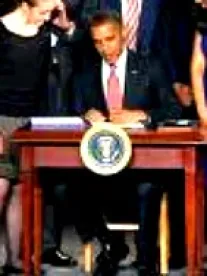September 16, 2011, President Obama signed into law the most comprehensive reform to U.S. patent law in over 50 years. After months of debate in both the House and the Senate, the America Invents Act (House Bill H.R. 1249![]() ) is law.
) is law.
Only time will tell, however, if the act lives up to its talking points. The act certainly favors larger entities that have the resources to quickly obtain sufficient data that will enable them to be first at the patent office. Accordingly, the bill greatly places small companies, independent entrepreneurs and universities at a disadvantageous position.
These small entities will be pressured to gather as much data as quickly as possible so that they can be first to file a patent application with sufficient support for broad claims. Because derivation proceedings would likely be very costly and time-consuming, these entities will be more inclined to eschew such options in favor for maintain their inventions as secrets until the patent is filed. This will likely slow the dissemination of information, especially in academia.
As for current patent owners, this bill offers a mixed bag. On the one hand, patent owners can avail themselves of supplemental examination in an effort to remedy any potential inequitable conduct problems that may have occurred during the original prosecution of the patent. In addition, as the "best mode" requirement is abolished, alleged infringers will no longer be able to use is as a weapon to defeat issued patents. On the other hand, alleged infringers will have an additional defense of "prior commercial use" and will no longer be exposed to an inference of willful infringement for "failure to obtain advice of counsel."




 />i
/>i
